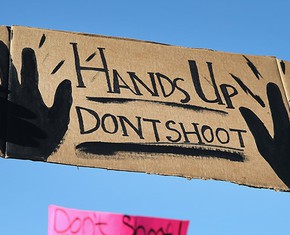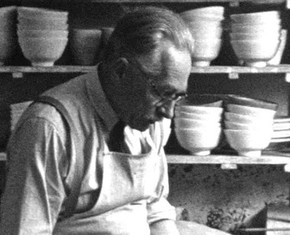The views expressed in our content reflect individual perspectives and do not represent the authoritative views of the Baha'i Faith.
Let us leave the discordant arguments concerning outward forms, and let us join together to hasten forward the Divine Cause of unity, until all humanity knows itself to be one family, joined together in love. – Abdu’l-Baha, Paris Talks, p. 127.
After my wife’s heart attack a few months ago, she and I began to understand the true meaning of community.
 Friends and family called, wanting to do something to help, then flew or drove in to spend a week cooking and cleaning for us. Beautiful, fragrant floral arrangements arrived. Cards and phone calls poured in. Neighbors stopped by with dinner; our dear fellow Baha’is brought us meals, asked if they could run errands, offered to pick up prescriptions or drive Teresa to her doctors’ appointments. We had so much kind, loving assistance that it became almost embarrassing at times, especially when the house overflowed with flowers and the refrigerator bulged with food.
Friends and family called, wanting to do something to help, then flew or drove in to spend a week cooking and cleaning for us. Beautiful, fragrant floral arrangements arrived. Cards and phone calls poured in. Neighbors stopped by with dinner; our dear fellow Baha’is brought us meals, asked if they could run errands, offered to pick up prescriptions or drive Teresa to her doctors’ appointments. We had so much kind, loving assistance that it became almost embarrassing at times, especially when the house overflowed with flowers and the refrigerator bulged with food.
We felt cared for and embraced by our extended community. We felt truly humbled by the outpouring of sweet love and kindness we received.
Then, the other day, we were talking to a friend from Germany who called to check in. She said “This recovery process must be so much work for the two of you.” I admitted that the community around us had done such a major amount that we felt overwhelmed with gratitude.
“Really?” she said. “I’ve never heard of that kind of response. That is truly remarkable.”
“Yes,” I told her, “You’re absolutely right. I think it is remarkable.”
I could tell that she was silently asking herself whether she had a community who would reach out and help if something happened to her. She’s relatively young, single, not a Baha’i, and lives in a large European city, so we talked for a while about the idea of community and how important it can be when you need the help of others—and even when you don’t. The loving support of a wide network of caring people—the whole idea of community—struck her as something she hadn’t thought much about, but needed to really ponder. She doesn’t feel like she has that sort of community, and she wants to have it.
Our discussion made me wonder: how many people today have an extended community they can rely on—their own network of loving, caring close friends, helpers and supporters?
So in this series of essays, we’ll consider the concept of community, try to define what it might look like, explore its relative rarity in the world today, figure out how to create one, and ask this primary question: do you have a community?
To start, let’s look at the word itself:
Community: n., 1. a) a social group of any size whose members reside in a specific locality, share government, and have a common cultural and historical heritage. 2. a social group sharing common characteristics or interests and perceived or perceiving itself as distinct in some respect from the larger society in which it exists: the business community, the community of scholars. 3. Ecclestiacal, a group of men or women leading a common life according to a rule. 4. Ecological, an assemblage of plant and animal populations occupying a given area. 5. Joint possession, enjoyment, liability. 6. Similar character; agreement; identity; community of interests. 7. The community, the public; society: We must consider the needs of the community. – Webster’s Unabridged Dictionary
The word community comes originally from the Latin word communis, which means “things held in common.” Community has always indicated fellowship and societal organization beyond immediate family—your extended network of friends, co-workers, co-religionists and societal connections. You could think of the word as a combination: community = common + unity. In other words, a community is a unified body of individuals, held together by something larger than themselves. Today we would probably add to Webster’s definition the virtual communities we all participate in online, as well.
Do you have a community? We probably all do, at least to some extent. Our family, our neighbors, our friends, our online friends, too—they typically make up our community. But do you actually belong to a community? Remember the definition: a unified body of individuals, held together by something larger than themselves.
Think about it for a moment. Who would come to your aid if you were in trouble? Who would help you if you lost your job, got sick, became disabled? Who would reach out to you if you were hungry and couldn’t feed yourself or your family? Who in your community truly loves you, and has the motivation to really express it? Where does your true sense of belonging to a community come from?
The Baha’i teachings have a powerful emphasis on building community. In fact, Baha’is believe that forging human unity and togetherness has become the chief challenge and opportunity of our modern age. Strikingly, the Baha’i writings make the stunning claim that achieving unity—the most important part of the word community—will eliminate all other human problems:
It is my hope that others as well will achieve illumined eyes and hearing ears, and attain to everlasting life: that these many rivers, each flowing along in diverse and separated beds, will find their way back to the circumambient sea, and merge together and rise up in a single wave of surging oneness; that the unity of truth, through the power of God, will make these illusory differences to vanish away. This is the one essential: for if unity be gained, all other problems will disappear of themselves. – Abdu’l-Baha, Selections from the Writings of Abdu’l-Baha, p. 30.
So let’s look at that challenge, and try to determine, in this hyper-individualized age, what it takes to build a personal community—and a world community.
















Comments
Sign in or create an account
Continue with Googleor